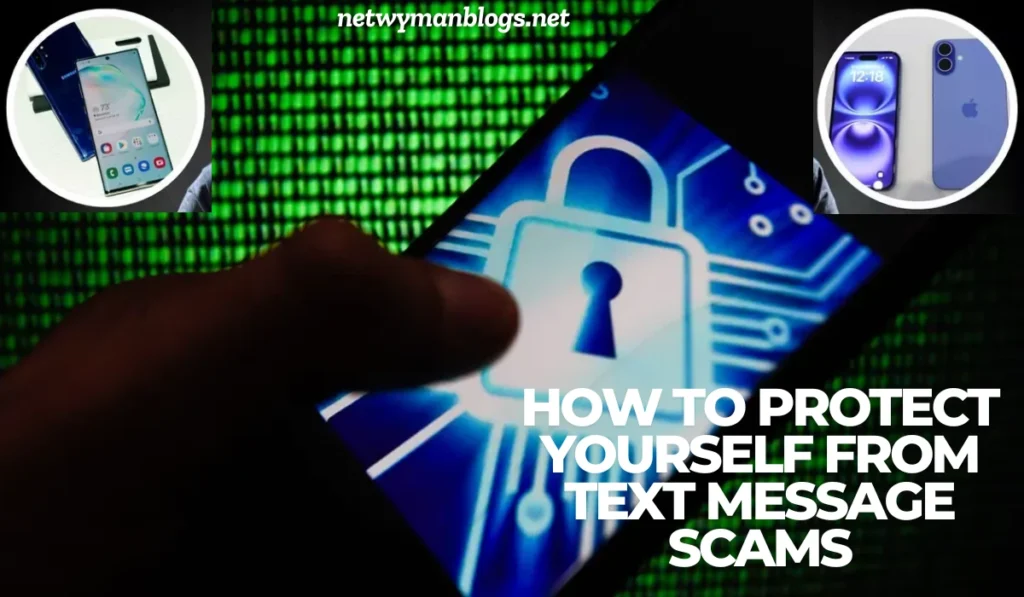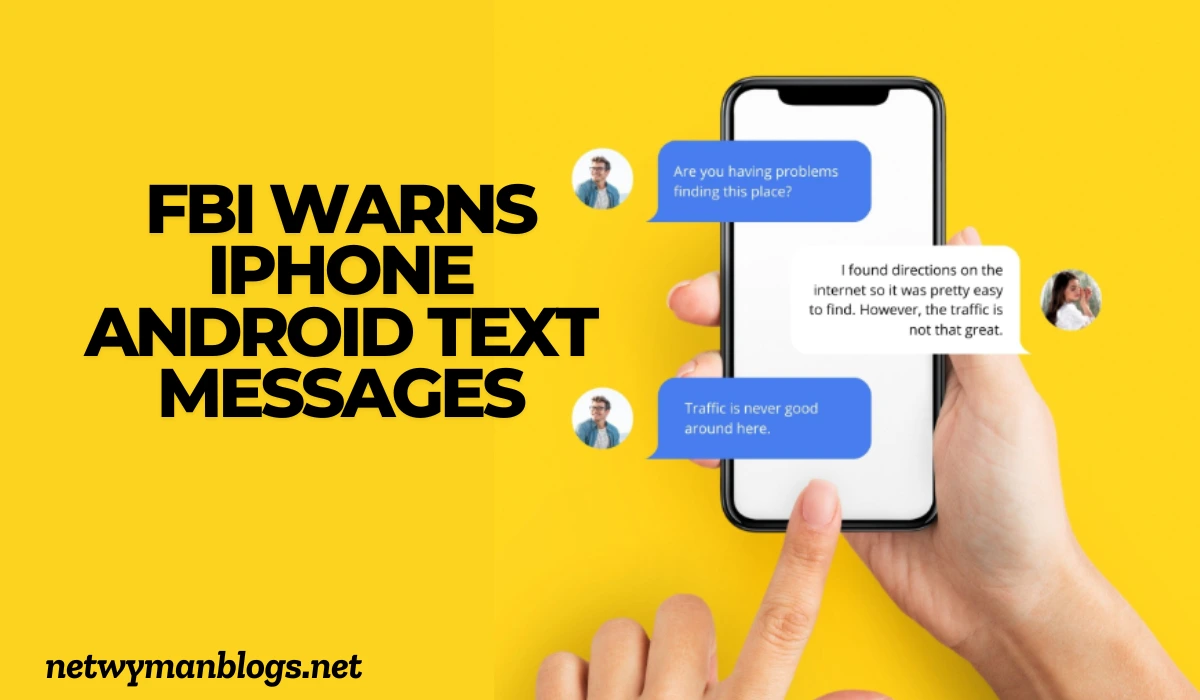In recent months, the FBI Warns iphone Android Text Messages users about rising threats linked to phishing scams and fraudulent messages. Both iPhone and Android users are at risk as scammers find new ways to trick people into giving up personal information. These scams not only cause financial loss but also compromise privacy and data security.
What Are These Text Message Scams?
The text message scams that the FBI warns iPhone Android text messages users about often appear to come from trusted sources. They might look like messages from banks, delivery services, or even government agencies. The goal is to trick you into clicking on links that lead to fake websites or to download malicious software onto your phone.
Many people receive messages that say things like “Your package is delayed” or “Your account has been suspended.” These messages create a sense of urgency, making people act quickly without thinking. Once you click the link or reply, scammers can steal your personal information, passwords, or even install malware on your phone.
How Do These Scams Work?
The scammers use various tactics to make their messages look real. They often use familiar logos and official-sounding language to gain your trust. Some messages may even include your name or other personal details to seem more convincing.
Here’s how the scam usually works:
- You receive a text message from a number that looks legitimate.
- The message asks you to click a link or reply with personal information.
- Once you click, you’re taken to a fake website or malware is installed on your device.
- Scammers use this information to steal money, access your accounts, or sell your data.
Read more: System io file readallbytes vb net
Why Has the FBI Issued This Warning?
The FBI warns iPhone Android text messages users because these scams have become more frequent and more sophisticated. Scammers are targeting people of all ages and backgrounds, and even those who consider themselves tech-savvy can fall for these tricks.
According to the FBI, thousands of people have reported losing money or having their personal information stolen through these scams. The losses can range from a few dollars to thousands, depending on how much information the scammers can access.
Signs of a Text Message Scam
Recognizing a scam can be tricky, but there are some common signs you can look out for. The FBI warns iPhone Android text messages users to be cautious if they notice any of the following:
- Unexpected Messages: If you get a message from a company or person you don’t know, be wary.
- Urgency: Messages that pressure you to act quickly, like “Immediate action required!”
- Links to Unknown Websites: Be cautious if the message includes links you don’t recognize.
- Requests for Personal Information: Legitimate companies won’t ask for sensitive information over text.
How to Protect Yourself From Text Message Scams

Since the FBI warns iPhone Android text messages users about these risks, it’s important to take steps to protect yourself. Here are some ways to stay safe:
1. Don’t Click on Suspicious Links
If you receive a message that seems suspicious, do not click on any links. Instead, contact the company or person directly through a verified phone number or website.
2. Enable Two-Factor Authentication (2FA)
Two-factor authentication adds an extra layer of security to your accounts. Even if scammers get your password, they won’t be able to access your accounts without the second verification step.
3. Keep Your Phone Updated
Regular updates to your phone’s software help protect against security vulnerabilities. Make sure your iPhone or Android is always running the latest version.
4. Report Suspicious Messages
If you receive a scam message, report it to your phone carrier or through government websites like ReportFraud.ftc.gov. This helps authorities track and stop scammers.
What to Do If You’ve Been Scammed
If you think you’ve fallen victim to a text message scam, act quickly to minimize the damage. The FBI warns iPhone Android text messages users to follow these steps immediately:
- Change Your Passwords: Update passwords for any accounts that may have been compromised.
- Contact Your Bank: If you shared financial information, notify your bank to freeze or monitor your accounts.
- Scan Your Phone for Malware: Use trusted security apps to check for malicious software.
- Report the Scam: Let the FBI and other authorities know about the scam to help protect others.
Common Types of Text Message Scams
| Scam Type | Description | How to Avoid |
|---|---|---|
| Phishing | Messages pretending to be from trusted companies | Don’t click links, verify source |
| Malware Links | Links that install harmful software on your phone | Use security apps, update phone |
| Financial Fraud | Requests for banking info to steal money | Never share sensitive data |
| Fake Delivery Notices | Claims about packages you didn’t order | Contact delivery services directly |
Why Are iPhone and Android Users Targeted?
Scammers target iPhone and Android users because nearly everyone uses smartphones for banking, shopping, and personal communication. The FBI warns iPhone Android text messages users that their personal data is valuable to scammers who can sell it on the dark web or use it for identity theft.
Smartphones often store sensitive data like saved passwords, credit card information, and personal contacts. This makes them attractive targets for scammers looking to steal valuable information.
How to Recognize a Legitimate Message
While many scam messages look real, there are ways to tell them apart from legitimate ones. The FBI warns iPhone Android text messages users to pay attention to details like spelling errors, strange links, or messages that come from odd phone numbers. Legitimate companies usually don’t ask for personal information via text and will never threaten you with immediate action.
If you’re unsure, contact the company directly using a verified phone number or their official website. Don’t reply to the suspicious message, as this can confirm to scammers that your number is active.
Read more: Sfemovie visual studio install
Frequently Asked Questions
Why does the FBI warn iPhone and Android users about text messages?
The FBI warns iPhone Android text messages users because of a rise in scams that steal personal and financial information.
How can I tell if a text message is a scam?
Look for signs like urgent language, strange links, and requests for personal information. If something feels off, it’s best to avoid clicking on links or replying.
What should I do if I click on a scam link?
If you click on a scam link, run a security scan on your phone, change your passwords, and contact your bank if financial information was shared.
How do I report a scam text message?
You can report scam messages to your phone carrier or through websites like ReportFraud.ftc.gov. This helps authorities track and stop scammers.
Conclusion
In today’s digital world, protecting yourself from scams is more important than ever. The FBI warns iPhone Android text messages users because scammers are finding new ways to trick people into giving up personal information. By staying aware of common scam tactics and knowing how to respond, you can keep your data and finances safe

